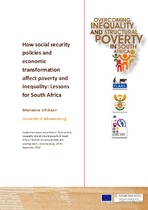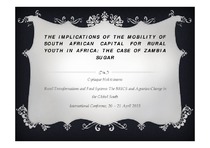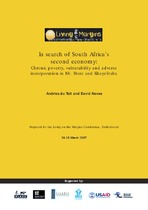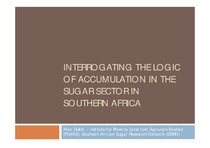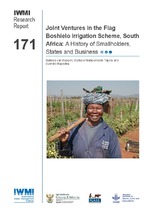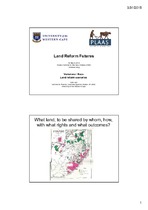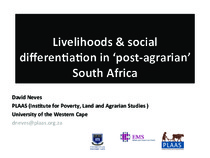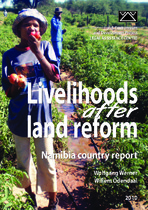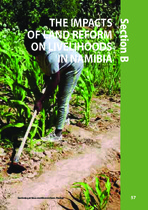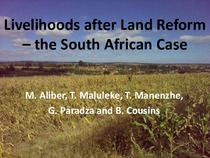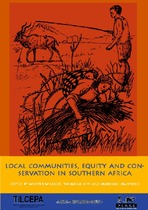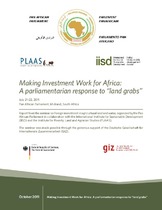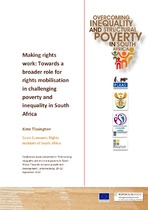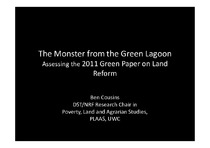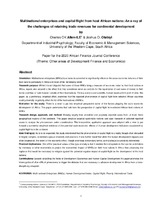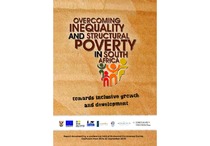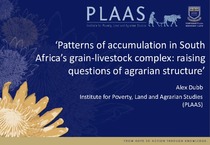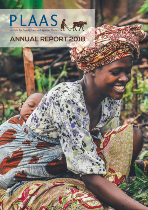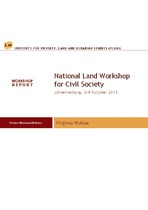Browsing Conference Papers and Reports by Title
Now showing items 24-43 of 71
-
How social security policies and economic transformation affect poverty and inequality: Lessons for South Africa
(Institute for Poverty Land and Agrarian Studies (PLAAS), 2010)This article examines how various characteristics of social and economic policy frameworks affect poverty and inequality levels in developing countries, principally in Botswana and Mauritius. The research findings suggest ... -
The implications of the mobility of South African capital for rural youth in Africa: The case of Zambian sugar
(2015) Developing young people as independent farmers and producers, capable to establish land-based livelihood at their own and on their own terms, seems to be the most desirable option to ensure the rural futures of rural ... -
In search of South Africa’s second economy: Chronic poverty, vulnerability and adverse incorporation in Mt. Frere and Khayelitsha
(Institute for Poverty Land and Agrarian Studies (PLAAS), 2007)Since 2003, South African policy discourse about persistent poverty has been dominated by the notion that poor people stay poor because they are trapped in a ‘second economy’, disconnected from the mainstream ‘first world ... -
Interrogating the logic of accumulation in the sugar sector in Southern Africa
(2016)Introduction to regional patterns of sugar production accumulation by way of data analysis for key (formerly ‘South African’) firm Illovo across 6 countries ‘Centrifugal’ logic throws-up a diversity of routes of ... -
Joint ventures in the Flag Boshielo Irrigation Scheme, South Africa: a history of smallholders, states and business
(International Water Management Institute (IWMI)., 2018)For over a century, debates about the relation between farm size, mode of farming and land productivity have shaped agrarian policies, programs and research across the world. Until the 2000s, the pendulum tended to swing ... -
Land reform futures
(2015)Overarching story • Away from pro-poor neo-liberalism towards the convergence of state resources, private capital and traditional authority • Elite capture of shrinking state resources – dangerous combination in context ... -
Livelihoods & social differentiation in ‘post-agrarian’ South Africa
(2017)• Legacy: Settler colonialism & migrant labour • Industrialization & proletarianisation • Dichotomous agrarian landscape • Rural poverty, esp. former homelands • Longstanding deagrarianisation -
Livelihoods after land reform: Namibia country report (2010)
(Land, Environment and Development Project, Legal Assistance Centre, 2010) -
Livelihoods after land reform: Namibia country report (2010) Section B
(Land, Environment and Development Project, Legal Assistance Centre, 2010)The first AALS farmers in Hardap obtained their land in 1992, and the most recent in 2003. In Omaheke, the first AALS farmer obtained his farm in 1992 and the most recent, a woman, in 2000. Thus in both regions the oldest ... -
Livelihoods after land reform: The South African case
(Institute for Poverty Land and Agrarian Studies (PLAAS), 2012)SA’s land reform regarded as a failure – economic objectives – the spectre of ‘failed projects’ – changing the racial pattern of land ownership – too slow • No consensus as to why, or what to do • Even so, ambitious ... -
Local communities, equity and conservation in southern Africa: A synthesis of lessons learnt and recommendations from a southern African technical workshop
(Institute for Poverty Land and Agrarian Studies (PLAAS), 2003)This publication reports on a technical workshop entitled ëCommunities and Conservation in Southern Africa: Key Issues and Challenges towards a more Equitable and Sustainable Futureí, which was held on 26ñ28 February 2003 ... -
Making investment work for Africa: A parliamentarian response to “land grabs”
(Institute for Poverty Land and Agrarian Studies (PLAAS), 2011)A new wave of foreign investment in Africa’s farmland and water was triggered in 2008 by the growing demand in Europe and North America for biofuels, spikes in oil prices, the global food crisis and the world financial ... -
Making rights work: Towards broader role for rights mobilisation in challenging poverty and inequality in South Afric
(Institute for Poverty Land and Agrarian Studies (PLAAS), 2010)This paper contemplates a broader conceptualisation/role for socio-economic rights use and mobilisation in South Africa, which not only mitigates the effects of poverty and inequality but also undertakes to address the ... -
The Monster from the Green Lagoon Assessing the 2011 Green Paper on Land Reform
(2011)Background • Consensus across the board that LR is in deep trouble and unlikely to meet targets • Some argue that food security is of rising concern, given rising food prices (here and globally) • Minister Nkwinti: ... -
Multinational enterprises and capital flight from host African nations: An xray of the challenges of retaining trade revenues for continental development
(Research Gate, 2021)Orientation: Multinational enterprises (MNEs) have been documented to significantly influence the socio-economic fortunes of their host nations particularly in Africa and most of the ‘developing world’. Research purpose: ... -
Overcoming inequality and structural poverty in South Africa
(Institute for Poverty Land and Agrarian Studies (PLAAS), 2010)Data indicates that between 1994 and 2008 poverty in South Africa declined marginally, but that inequality continues to increase, and the full impact of the rise in unemployment following the global financial crisis has ... -
Patterns of accumulation in South Africa’s grain-livestock complex: raising questions of agrarian structure
(2017)• What is the grain-livestock ‘complex’ (GLC)?: – ‘Complex’ rests on the key linkage between maize and soya key inputs and central cost ingredients in production of feed for intensive livestock production (pigs, chickens ... -
PLAAS Annual Report 2018
(PLAAS, 2019-08)PLAAS had a busy 2018. With the land reform debate catapulted into the public sphere, new teaching initiatives, and various research projects and outputs, our team had quite a year. We had a successful and productive year. ... -
PLAAS Workshop Report: National Land Workshop for Civil Society: Johannesburg, 2–4 October 2013
(Institute for Poverty Land and Agrarian Studies (PLAAS), 2013)A number of recent government policies and bills seem to suggest that land may increasingly be transferred into the hands of traditional leaders and other elite strategic partners, rather than to communities, who will ... -
The political economy of global and regional agro-food system change
(2015)Changes in the BRICS countries: What are key similarities/differences between the agrarian structures of Brazil, China and South Africa? What are the dynamics of change within these BRICS countries, in relation to the ...

